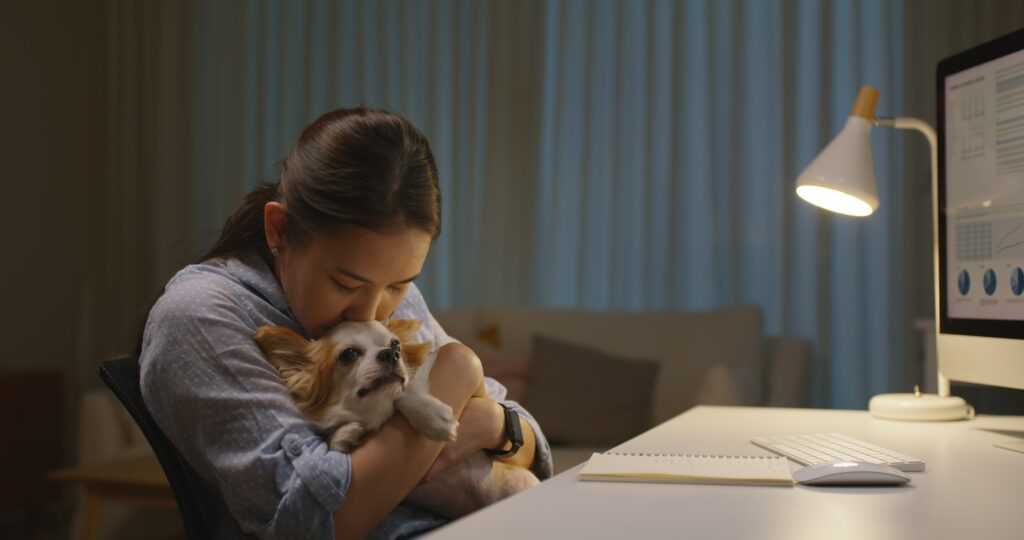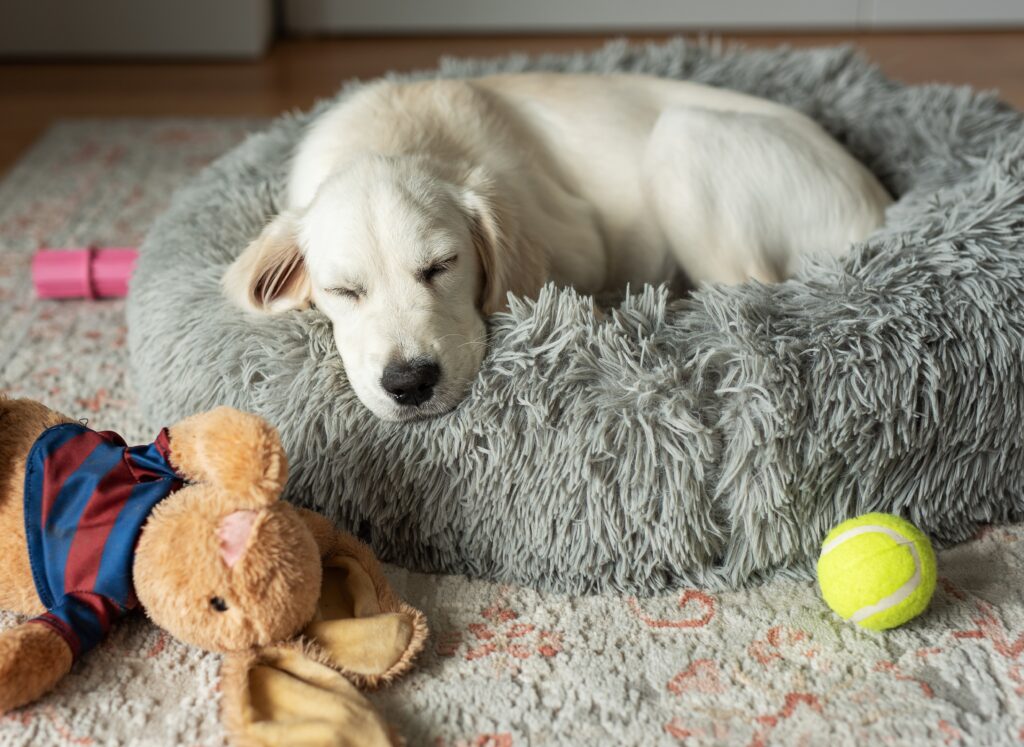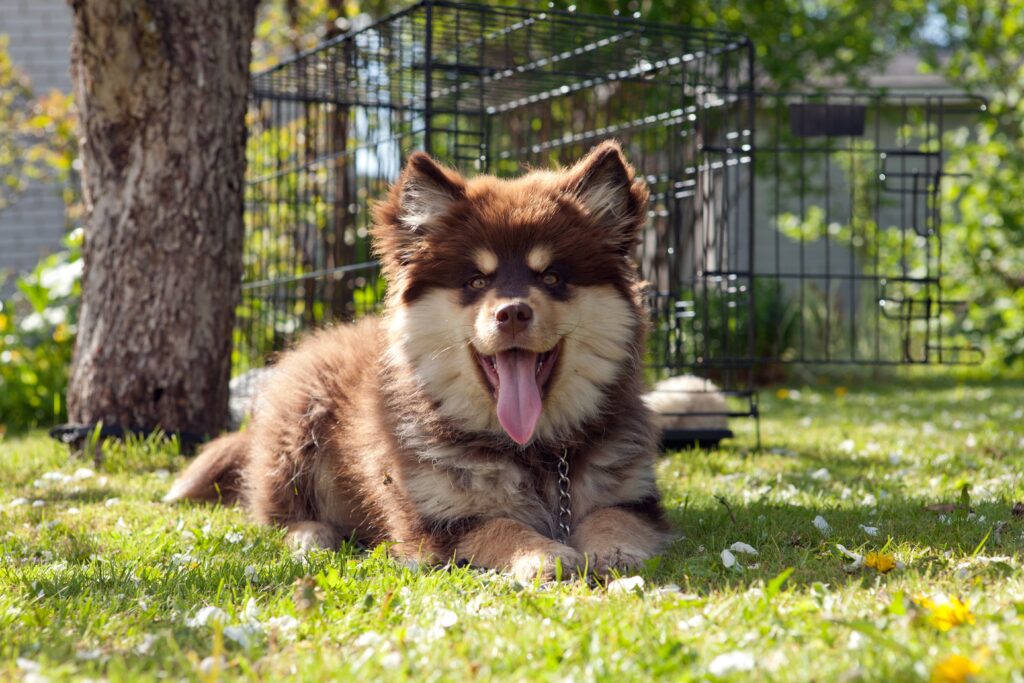Yes, you should respond to a puppy crying at night, but how you respond depends on the reason for the crying and how old the puppy is. Puppies cry at night for a variety of reasons, and how you handle it can influence their behavior and comfort level.
Why Puppies Cry at Night
- Separation Anxiety – Puppies are used to being with their littermates and mother for the first few weeks of their life, so being alone in a new home can be stressful. Crying at night is often a sign of separation anxiety.
- Needing to Potty – Puppies, especially younger ones, have small bladders and need to go outside frequently. Crying might be a sign they need to relieve themselves.
- Hunger or Thirst – If you haven’t fed the puppy enough before bedtime, they might cry because they’re hungry or thirsty.
- Discomfort – Puppies might cry because they’re uncomfortable—maybe they’re too hot, too cold, or the sleeping area is not cozy enough. Check the crate, bedding, and temperature.
- Loneliness or Fear – A new puppy might feel overwhelmed in their new environment. They could be anxious about being left alone, or they might be startled by unfamiliar sounds in their new home.
- Teething or Pain – Puppies go through a teething phase between 3 and 6 months. Crying could be due to discomfort from their teeth coming in or if they are in pain for some other reason (less common, but worth considering).
How to Respond to a Puppy Crying at Night
Check for Immediate Needs (Potty, Hunger, Discomfort)
- Potty Break – If your puppy is very young (under 16 weeks), it’s important to take them out for potty breaks during the night. Puppies usually need to go outside every 2–3 hours at that age. Set an alarm if necessary, and take them out even if they’re not crying immediately, as they may cry only once they’ve been holding it for a while.
- Hunger/Thirst – If the puppy has had a full meal before bed and is still crying, they’re likely not hungry. If it’s been several hours and they’re very young, they might need a midnight snack.
- Comfort Check – Ensure the puppy’s bedding is clean, the crate is comfortable, and the temperature is suitable. A soft blanket, some toys, and a safe space in their crate can help them feel secure.
Don’t Reinforce Crying for Attention
- Avoid Picking Them Up Right Away – If the puppy is crying simply because they are lonely or seeking attention, avoid immediately picking them up or comforting them every time they cry. This can teach them that crying gets attention, which can encourage the behavior.
- Gradual Comforting – You can let the puppy cry for a few minutes to see if they settle on their own. If the crying becomes intense, you should check on them to make sure they are safe and healthy. If the puppy is truly distressed, try soothing them with a calm voice or gentle petting through the crate without taking them out.
Gradual Crate Training
- Crate Training (With Positive Associations) – If your puppy is new to a crate, they might cry simply because they’re not used to being confined. If you’ve started crate training, continue to associate the crate with positive experiences (treats, toys, meals). Over time, your puppy will feel more comfortable in the crate.
- Avoid punishment in the crate, as it can lead to negative associations with their safe space.
- Try putting a soft blanket or a piece of clothing with your scent inside the crate, as the familiar smell can be comforting.
Gradual Sleep Training (Tolerating Alone Time)
- Gradual Desensitization – If the crying is due to separation anxiety, you can work on desensitizing the puppy to being left alone. Start with short periods of time (even in the daytime), and gradually increase the duration as they get used to being alone without crying.
- Comforting without Overindulging – You can comfort them with a soft voice or by placing your hand gently on the crate without letting them out. Try not to make the interaction too exciting—calmness will help your puppy relax.
Don’t Leave Them to Cry for Too Long
- Excessive Crying Can Be Stressful – If your puppy is crying for a long time (more than 15-20 minutes) and seems distressed, it could be a sign of a deeper issue, like separation anxiety or discomfort. While it’s important to teach your puppy how to sleep independently, don’t leave them to cry endlessly. Go check on them, and if necessary, take them out for a potty break or comfort them.
Use a Soothing Device (Optional)
- Some puppies find comfort from things that simulate the presence of their mother or littermates…
- Heartbeat Toys or Sound Machines – There are heartbeat simulators or calming sound machines that mimic the sound of a mother’s heartbeat. These can provide comfort, especially for very young puppies.
- Warmth – A warm (but not hot) water bottle wrapped in a towel or a heating pad on a low setting can help soothe a puppy that feels lonely or cold in the night.
Long-Term Solutions
- Create a Consistent Routine – Puppies thrive on routines, so try to establish a bedtime routine where they know it’s time to sleep after play and potty breaks. A consistent bedtime routine will help your puppy feel secure and reduce nighttime crying.
- Exercise During the Day – Make sure your puppy has plenty of exercise and mental stimulation during the day. A tired puppy will be more likely to sleep soundly at night.
In Summary
- Yes, respond to your puppy crying, but try to assess the cause first. If it’s because of basic needs like potty, hunger, or discomfort, address those immediately.
- Don’t reward crying with attention unless there’s a genuine need. Over time, try to teach them that crying doesn’t get them out of the crate, but calmness and patience do.
- Gradual desensitization to being alone is key, and over time your puppy will adjust to their new environment and learn to settle at night.
Crying at night is a normal part of a puppy’s transition to their new home, and with patience and consistency, it will likely improve over time.


